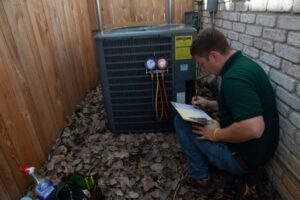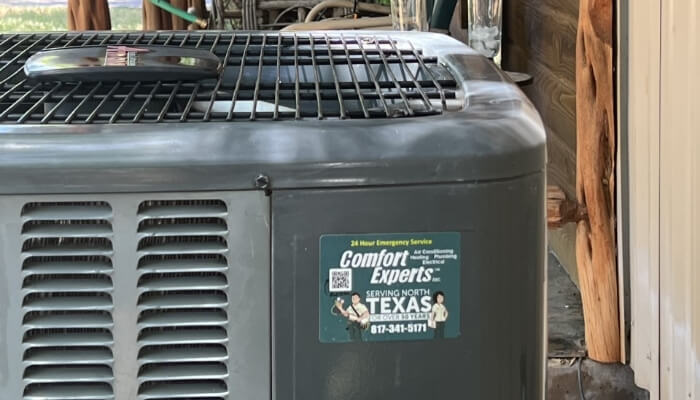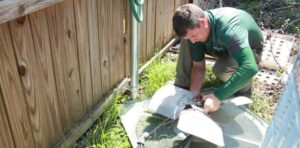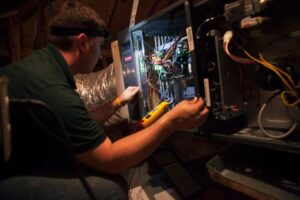Summer is on its way, which means you will soon be ready to turn on the air conditioner in your home for cooler, more comfortable temperatures. But running the AC all summer long can be costly. Using more energy increases your monthly bills. Save more each month by ensuring that no air goes to waste due to leaks inside your home. Make sure your home is properly sealed and ready for the summer so the cold air stays in and the warm air stays out.
 Search for Leaks
Search for Leaks
Before you can seal the leaks, you must first find the leaks. Check under windows and doors for possible cracks or openings that air can get through. One test you can perform to check for leaks is to hold a piece of toilet paper doors, windows, ceiling fans, or anywhere else you might suspect that air is getting through. Turn the HVAC system off so that the air is still inside the home. Then hold the piece of toilet paper up to the area where there might be a leak. If it begins to move as you hold it in place, then there is air getting through and you have found a leak that needs to be sealed. Utility connections, air ducts, plumbing fixtures, or even hatches could also be places where leaks may occur. Do a thorough inspection of your home to properly seal up leaks and keep the cool air inside this summer.
Seal Leaks
Once you have found the leaks, you want to seal them up. For doors and windows, use weatherproof caulking to seal cracks or gaps. Replace the door sweep under the door if there are openings where air can get through. Leaks in air ducts should be sealed with mastic sealant and not tape. If you see cracks or holes outside your home as you do a perimeter check, you can fill these in with foam spray.
Ensure Proper Ventilation for Improved Air Quality
While sealing up your home is great for energy efficiency, you have to be careful that it doesn’t reduce the ventilation in your home which can lead to the poor air quality inside. Without ventilation in the home, pollutants such as dander, mold, or pollen can build up inside and create an unhealthy environment that decreases the air quality inside the home. In some instances, it can be two to five times worse than what is in the air outside. Don’t gain energy efficiency but sacrifice air quality. Consult the HVAC experts to ensure that your home is properly equipped with a ventilation system that will improve the inside air you breathe.
For more information about how to make your home more energy-efficient or how to improve the indoor air quality, don’t hesitate to contact the professional HVAC technicians at Comfort Experts. We are happy to work with you on any HVAC installation or repair or simply answer any questions you may have.
 Install an Independent System
Install an Independent System Length of Time Away
Length of Time Away
 Cut Power to the AC Unit
Cut Power to the AC Unit Here at Comfort Experts, we are not an insulation company, but we know how important it is to have your home properly insulated so that your HVAC unit can work the way it was intended while keeping your energy bills low. If you’re experiencing higher than normal energy bills or suspect issues with your attic insulation, we’d recommend that you look into getting that taken care of. Our AC repair technicians are
Here at Comfort Experts, we are not an insulation company, but we know how important it is to have your home properly insulated so that your HVAC unit can work the way it was intended while keeping your energy bills low. If you’re experiencing higher than normal energy bills or suspect issues with your attic insulation, we’d recommend that you look into getting that taken care of. Our AC repair technicians are 